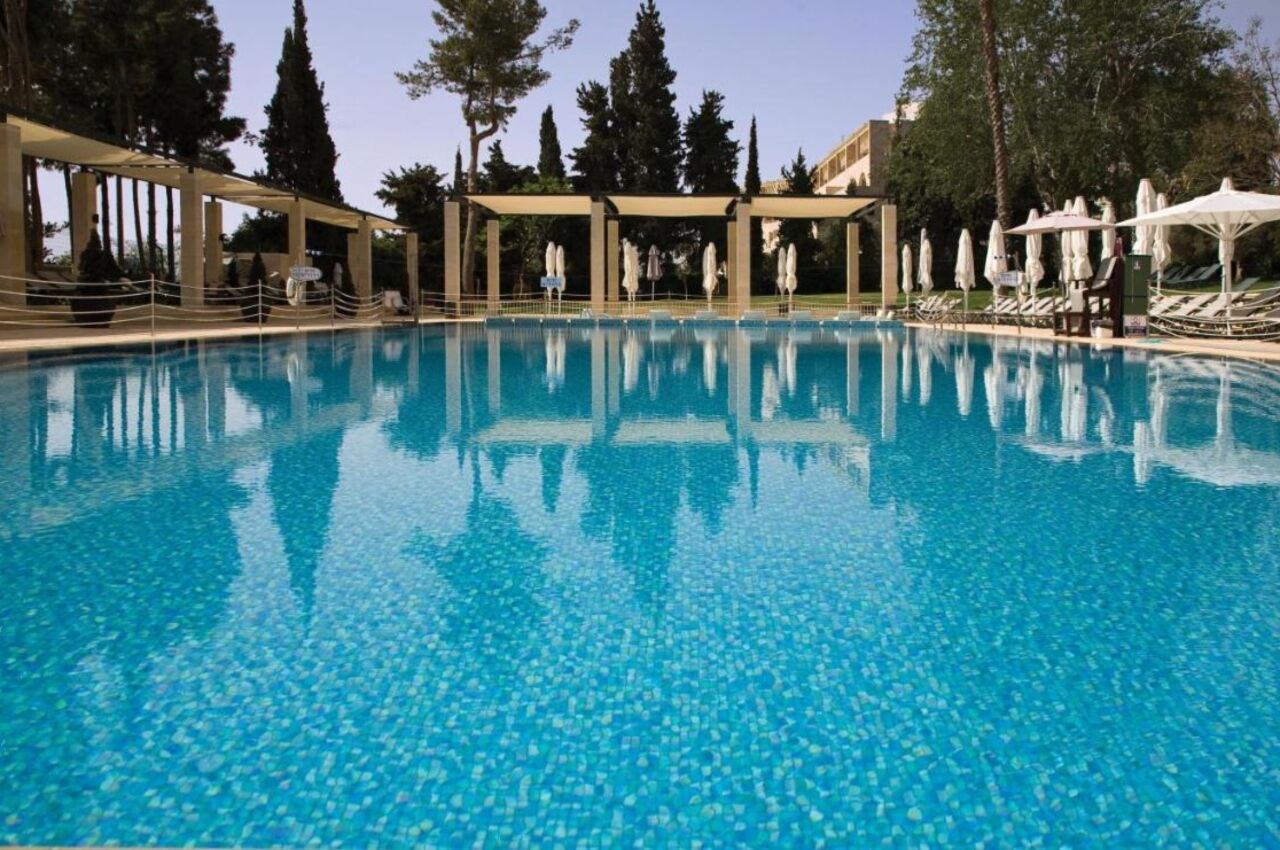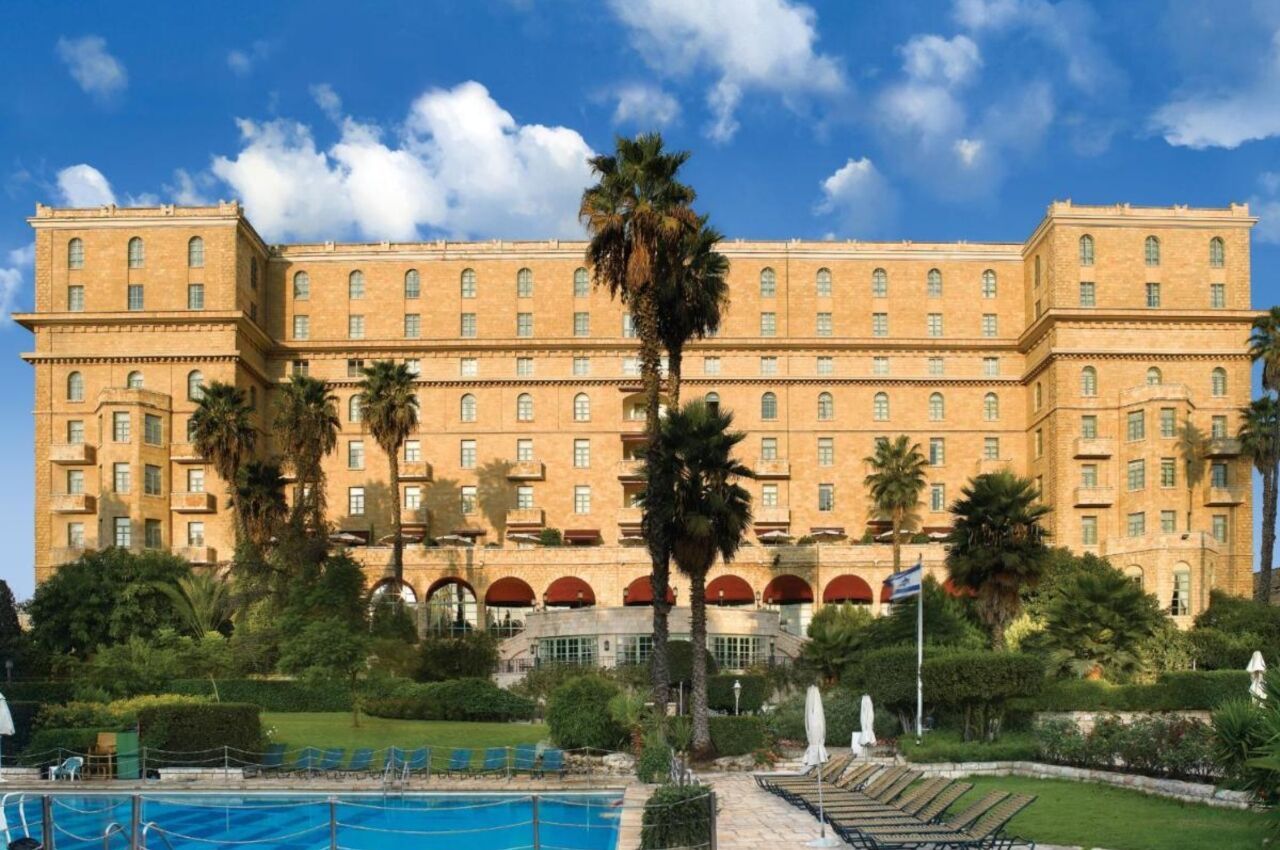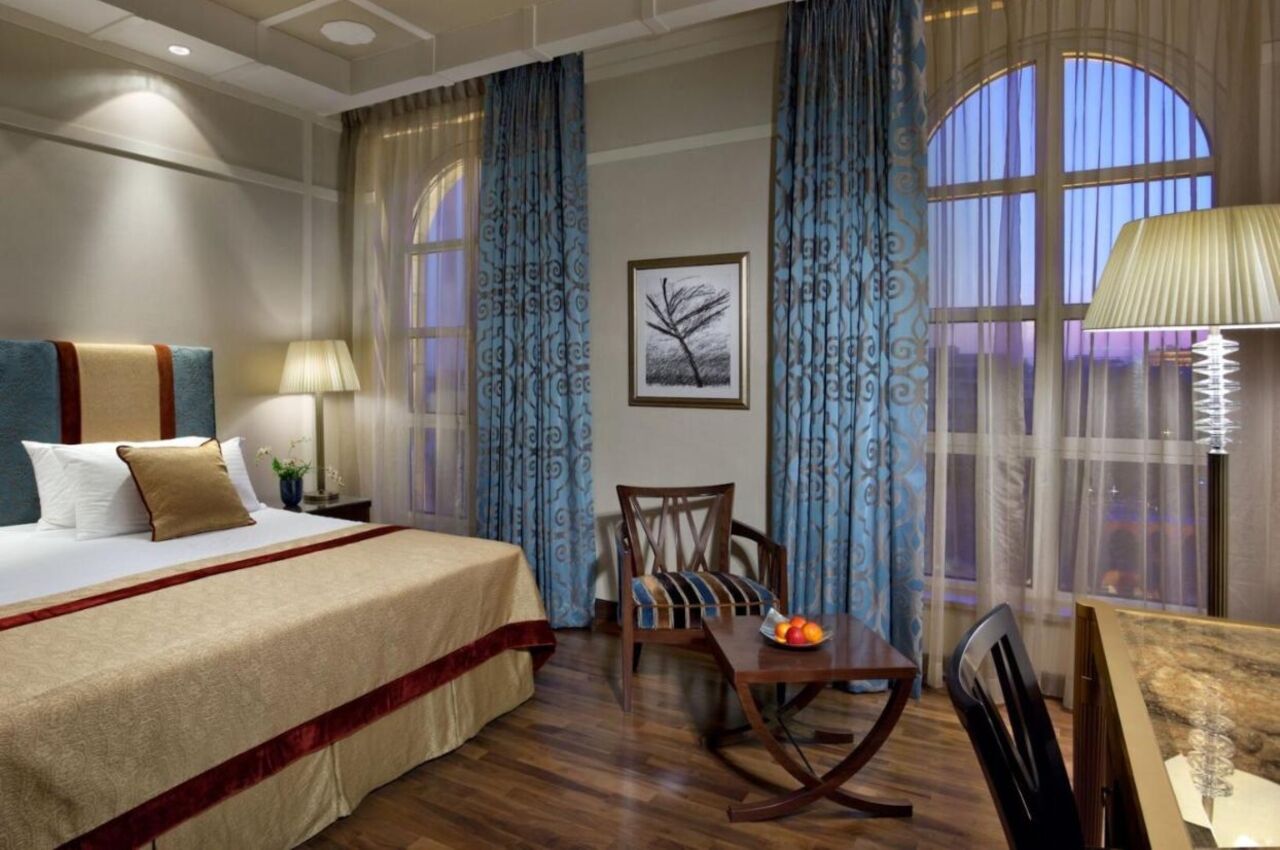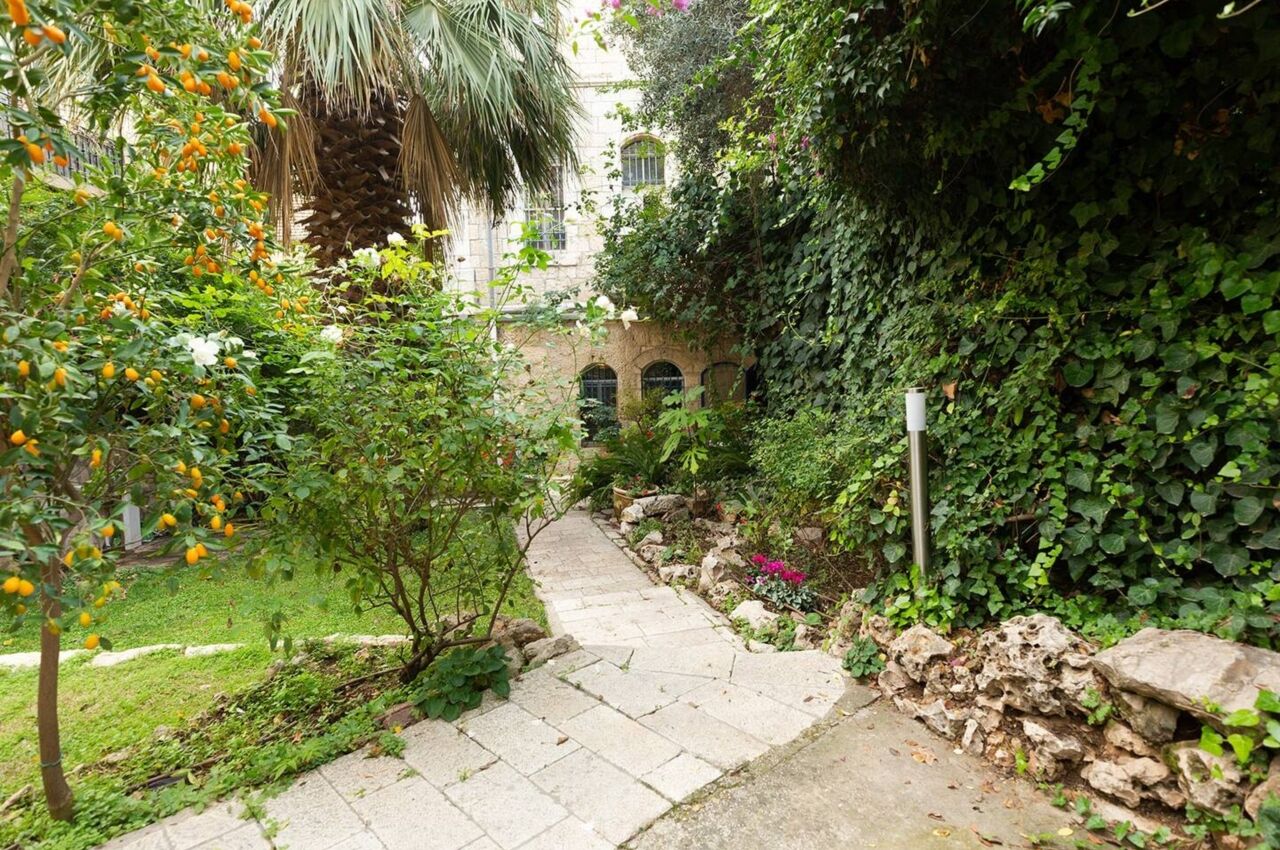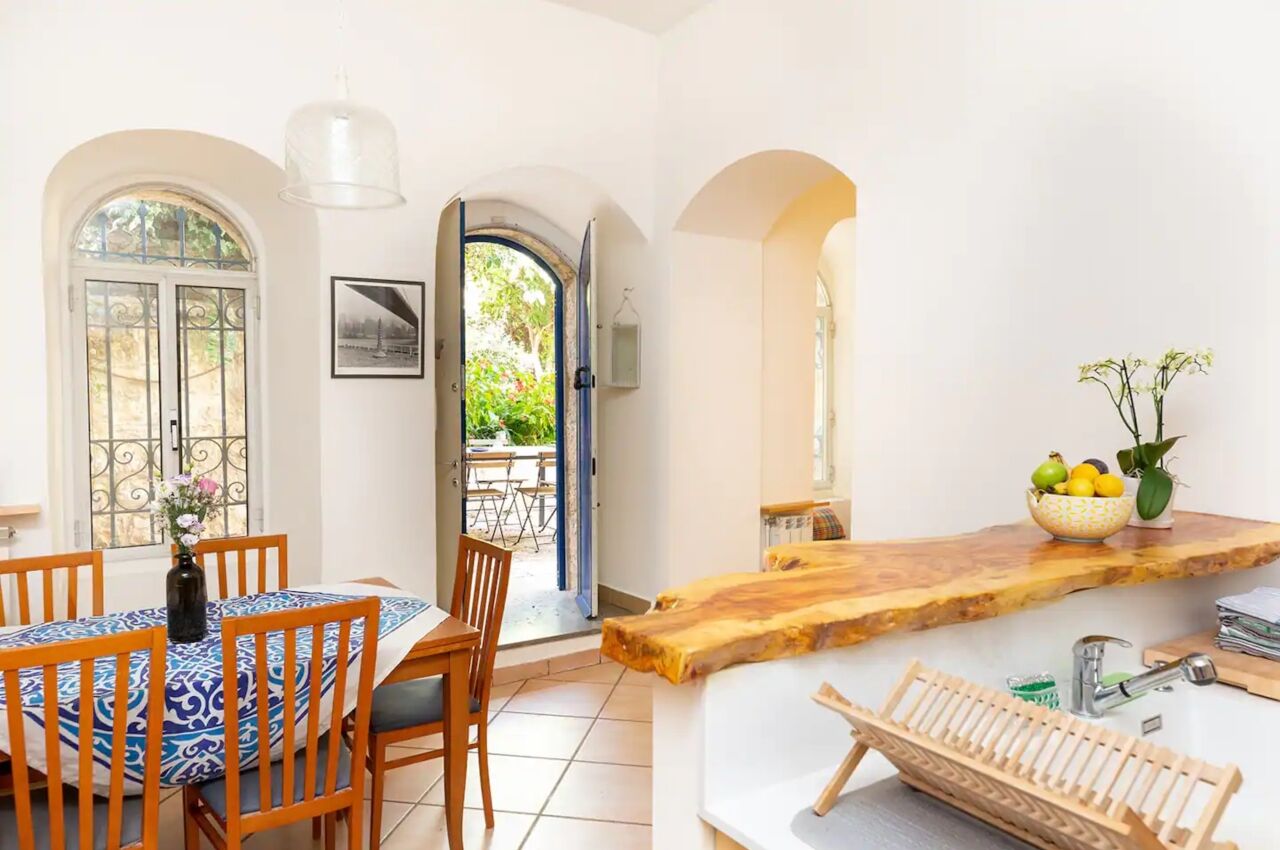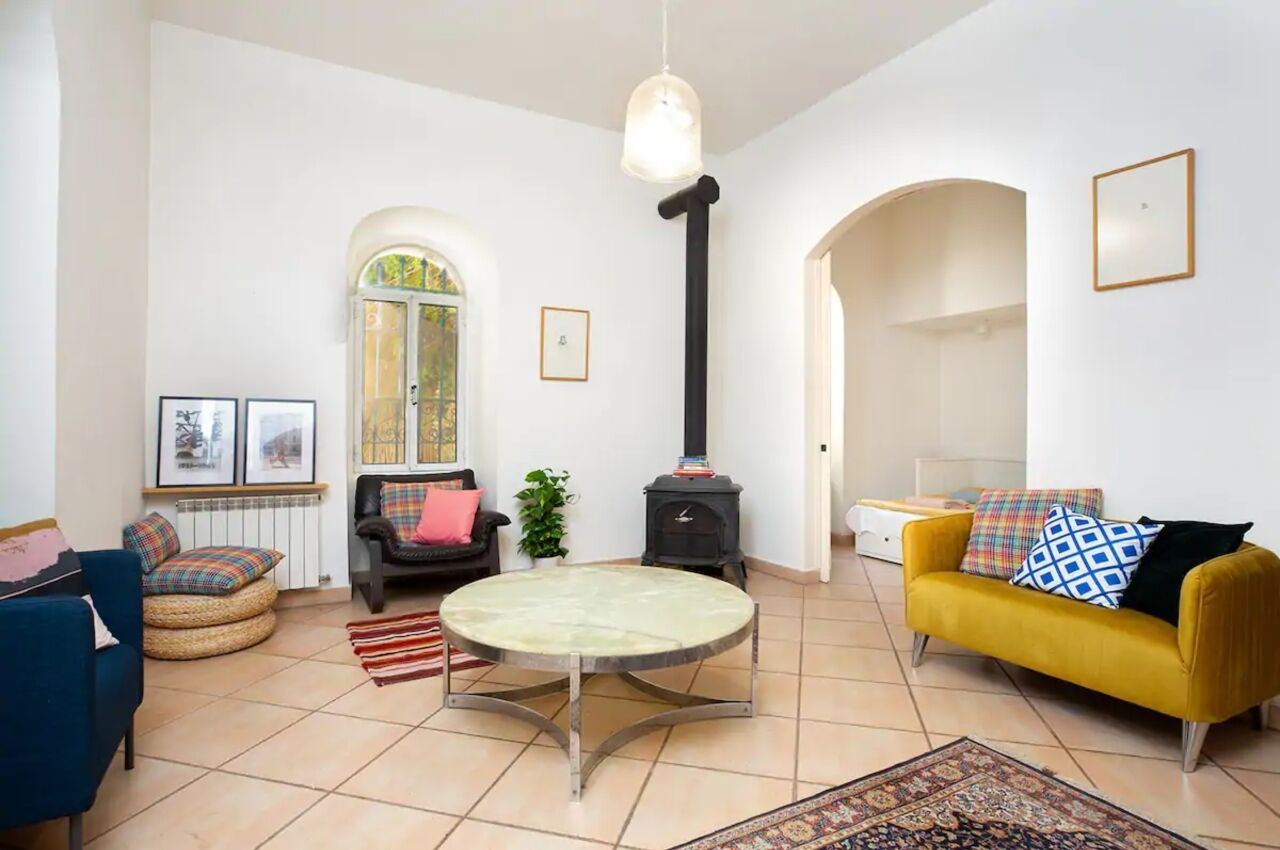Walk under Jaffa Gate’s historic stones in Jerusalem‘s Old City and it might seem like there’s no space for the queer community. Israel’s holy epicenter, and arguably the world’s, is already divided into four strict quarters catering to Jews, Muslims, Christians, and Armenians; when it comes to religion, there isn’t always room for LGBTQ+ life. Look at various interpretations of the Talmud for proof: same-sex relations are supposedly so sacrilegious they inspire earthquakes (which, depending on what we’re calling an earthquake, might not be a bad thing).
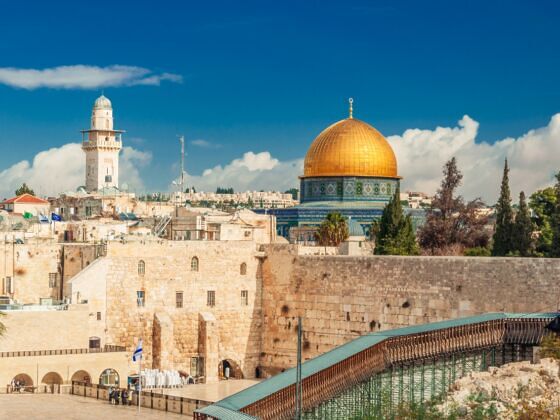
But peer through the cracks of Jerusalem’s centuries-old walls, and you’ll find a queer scene blooming like kalaniot — the poppies that bathe Israel’s seemingly inhospitable Negev Desert in pink.
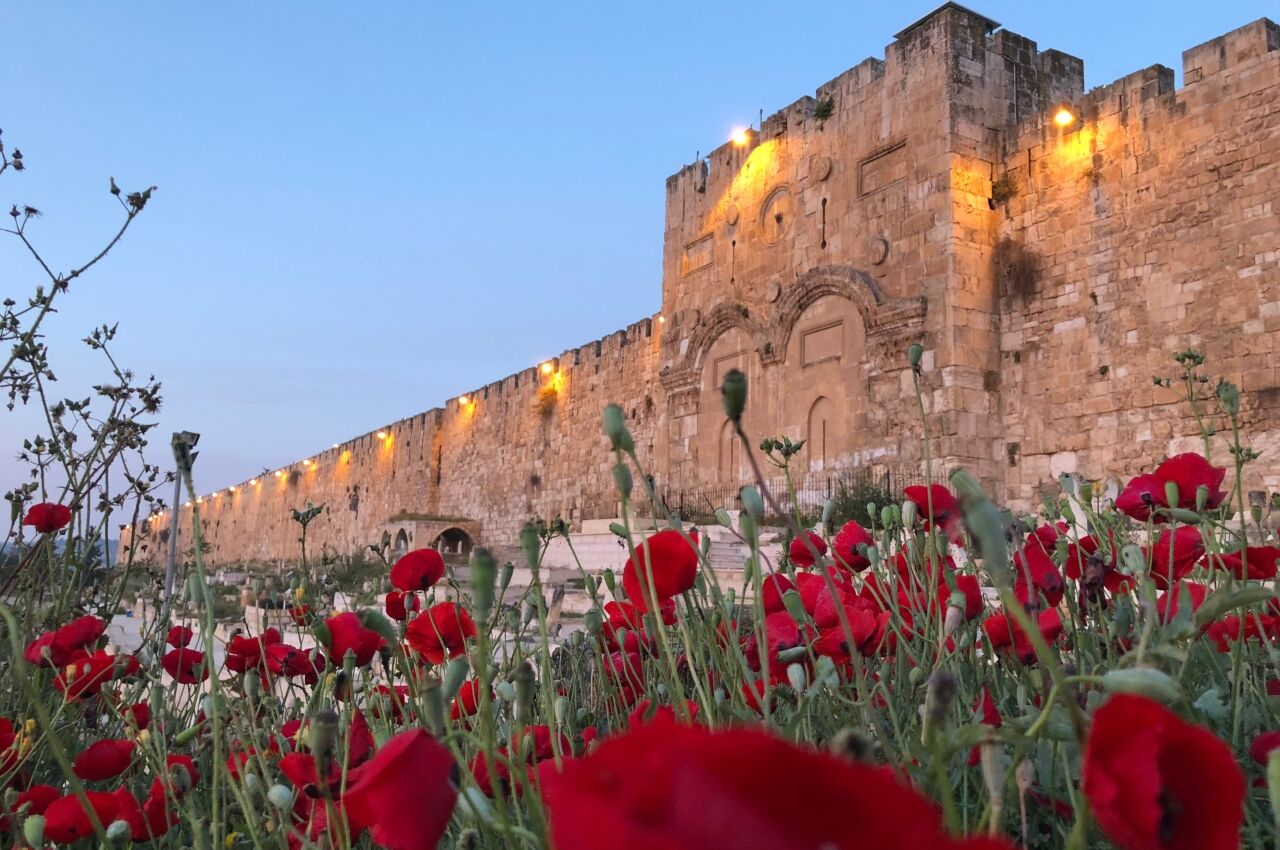
Photo: John Theodor/Shutterstock
Although it’s not Israel’s queer epicenter — that title goes to Tel Aviv, an hour’s drive east — a burgeoning cool-kid counterculture in Jerusalem defies religious stereotypes. Stroll around downtown and you’ll spot tattooed intellectuals sipping cortados as Orthodox men pass by in tallits (traditional Jewish prayer shawls). Spend an afternoon at Machaneh Yehudah Market, and you might have a religious experience sipping beer with hipsters rapping Nunu’s latest Hebrew hit. This isn’t just the Holy City — it’s the capital of Israel — a political powerhouse that acts as a magnet for all stripes of citizens.
Still, these glimmers of queer life can be hard to find if you don’t know where to look. To get the lowdown on Jerusalem’s LGBTQ+ scene, Matador Network spoke with local expert Jonathan Valfer for guidance. As founder of the queer party Tipulei Harama and board co-chair for the LGBTQ non-profit Jerusalem Open House (JOH), there’s no one better acquainted with the city’s queer scene.
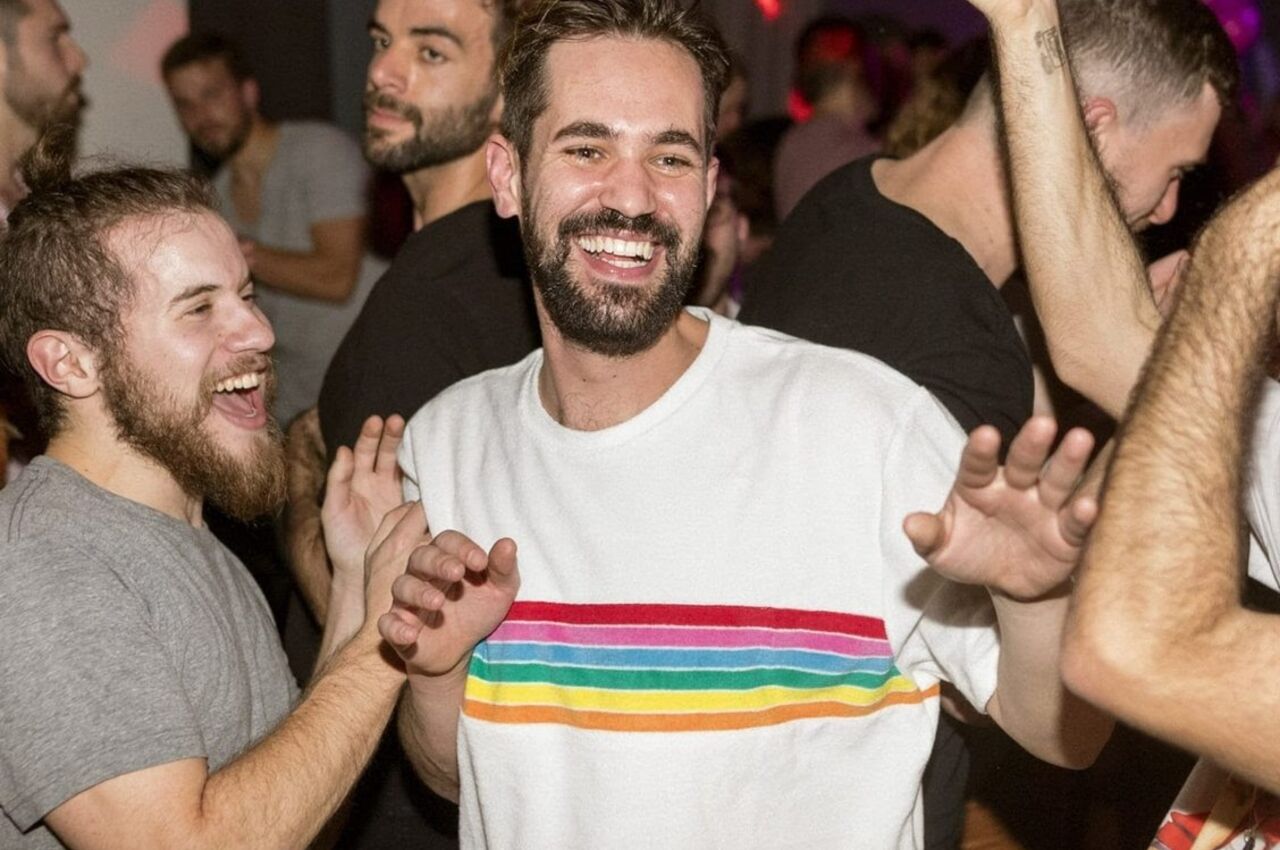
Photo: John Garry. Jonathan Valfer.
From bisexual kings to Jerusalem’s gay version of a synagogue, here’s everything you need to know about the rainbow side of Israel’s religious stronghold.
- Gay Jerusalem’s past and present
- Where to find Jerusalem’s LGBTQ+ community year-round
- Jerusalem’s LGBTQ+-friendly cafes and bars
- Gay Jerusalem’s best events
- What you need to know before visiting Jerusalem
- Where to stay in Jerusalem
Gay Jerusalem’s past and present
There’s no denying it: Jerusalem is extremely conservative. “Ultra-Orthodox Jews and Palestinians make up about two-thirds of the population, and 99 percent of the gay people in those communities are in the closet,” says Valfer. As a result, the city’s LGBTQ+ history isn’t something you’ll learn about while touring places like the Wailing Wall (Judaism’s holiest prayer site). But for those in the know, Jerusalem’s queer community pre-dates many historical structures still standing today.
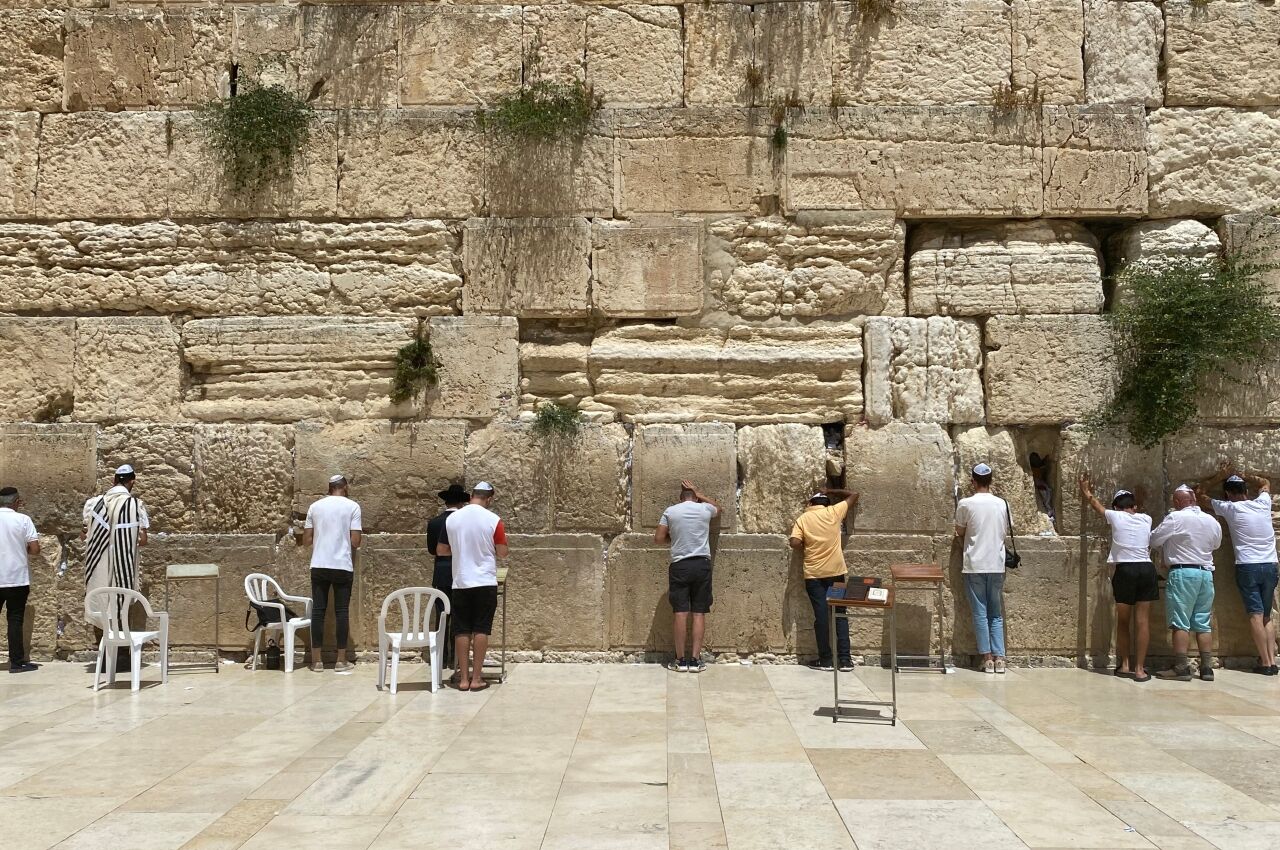
Photo: John Garry. The Wailing Wall.
Analyze the Hebrew Bible with a pink lens, and compelling anecdotes allude to queer love in the Kingdom of Judah, part of present-day Jerusalem. Just look at King David, whose relationship with the warrior Jonathan paints him as bisexual, if not gay. “The soul of Jonathan was knit with the soul of David,” reads 1 Samuel 18:1. In 2 Samuel 1:26, when Jonathan dies, David says, “…thy love to me was wonderful, passing the love of women.”
Then there’s the Book of Kings, which suggests homosexuality was widely accepted during Jerusalem’s First Temple Period (1200-586 BCE). According to media historian Elon Gilad, sacred male and female prostitutes likely resided in the kingdom’s temples and were used to connect with gods. Histories recorded by neighboring nations in the ancient Near East imply that male prostitutes probably wore women’s clothing and might’ve been castrated.
There might be a lacuna of queer history between the First Temple Period and contemporary times, but don’t let the lack of stories fool you. Queer life always has a way of lurking in the shadows.
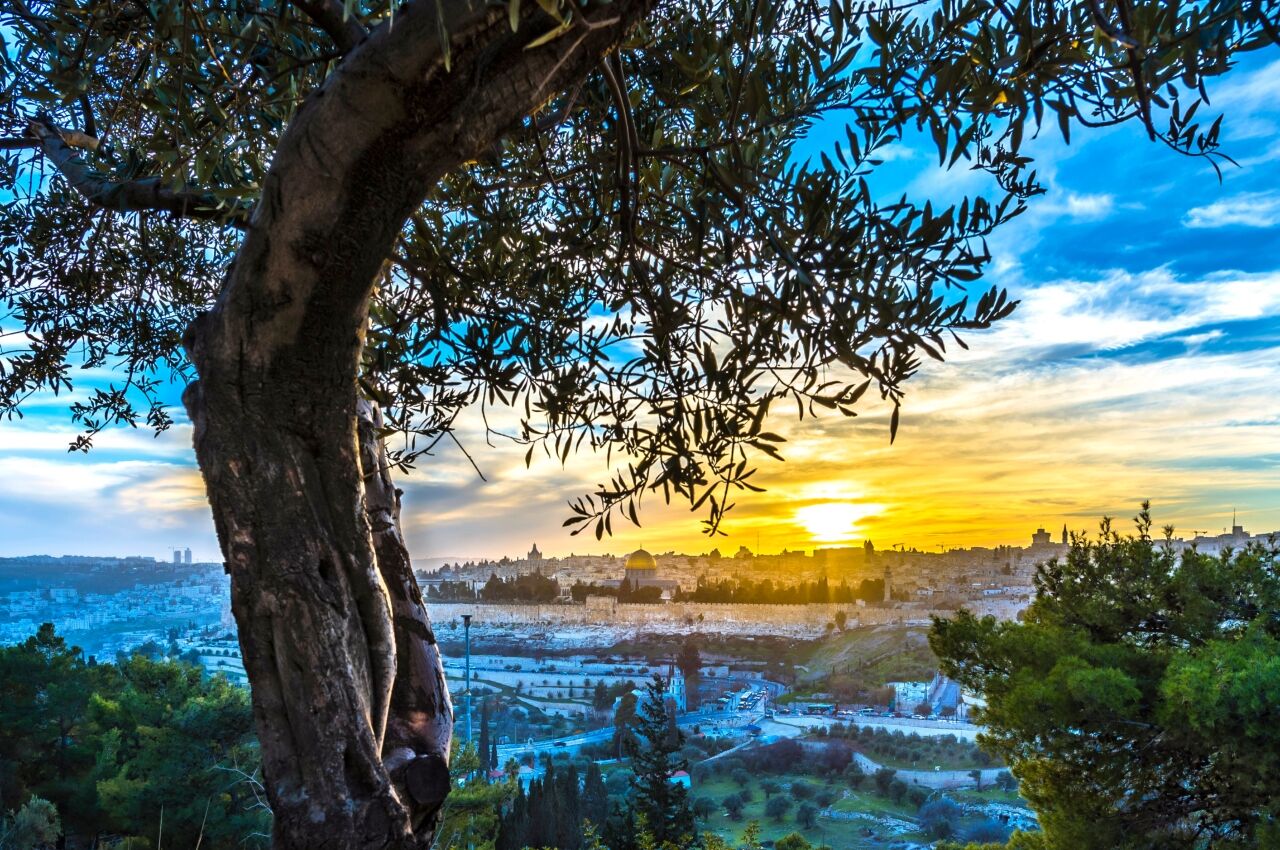
Photo: John Theodor/Shutterstock
Head to Independence Park for a piece of this clandestine past. The park, a sprawling green space east of King George Street, was a reputed cruising spot for gay men before the advent of dating apps. Stick around as the sun goes down, and there’s a chance you’ll still find men seeking King David-style love among the bushes.
Today, Israel’s liberal LGBTQ+ laws mean queer folks in Jerusalem don’t have to hide their ROY-G-BIV proclivities. Same-sex sexual activity was officially decriminalized in 1988, and discrimination on the grounds of sexual orientation is illegal. While same-sex marriage has yet to be legalized, same-sex couples can marry abroad and have their union recognized by the government.
At the center of the city’s queer community is Jerusalem Open House, a non-profit that’s provided LGBTQ+ visibility and support since 1997. The grassroots organization flies a rainbow flag from its downtown outpost, where it organizes community functions like Pride and advocates for LGBTQ+ rights in Israel. Local groups dedicated to trans folks, women, seniors, and youth ensure there’s a seat at the table for everyone on the rainbow spectrum.
Still, Israel’s liberalism doesn’t mean openly identifying as part of the alphabet mafia is easy. “Being gay in Tel Aviv is normal — everyone is gay in Tel Aviv,” says Valfer. “Being gay in Jerusalem is political. It requires locals to fight for space in public areas. But I think the beautiful thing in Jerusalem is that when you see people who are different from you, they’re not monsters anymore. And you learn how to be much more tolerant of differences.”
Where to find Jerusalem’s LGBTQ+ community year-round
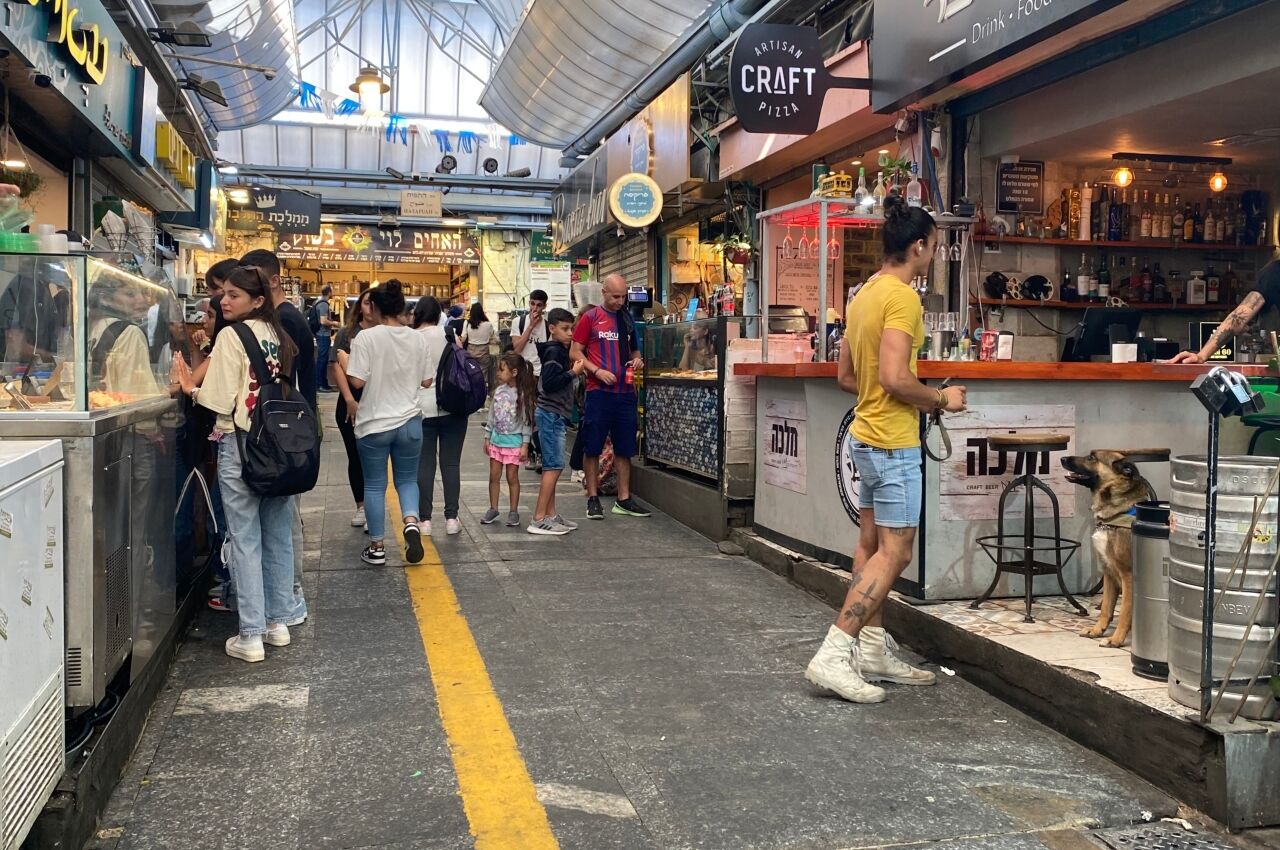
Photo: John Garry
Unlike the Old City’s clearly-defined quarters, most of Jerusalem feels like a curious experiment of colliding cultures. “On one hand, everything is very political and religious,” says Valfer. “On the other hand, there is a powerful secular community with intellectuals, professors, doctors, and students.” Within this sacred and secular hodge-podge, queer travelers can find their tribe by searching for familiar LGBTQ+ icons.
While the Orthodox Jewish community might look for kosher certificates at restaurants, non-religious folks use rainbow flags as a certificate of liberalism — and according to Valfer, all the liberal places in Jerusalem are queer-friendly. Most of these hangouts are cafes and galleries around what locals call ‘the Triangle’ — the Rehavia, Nachlaot, and the City Center neighborhoods.
Jerusalem’s LGBTQ+-friendly cafes and bars
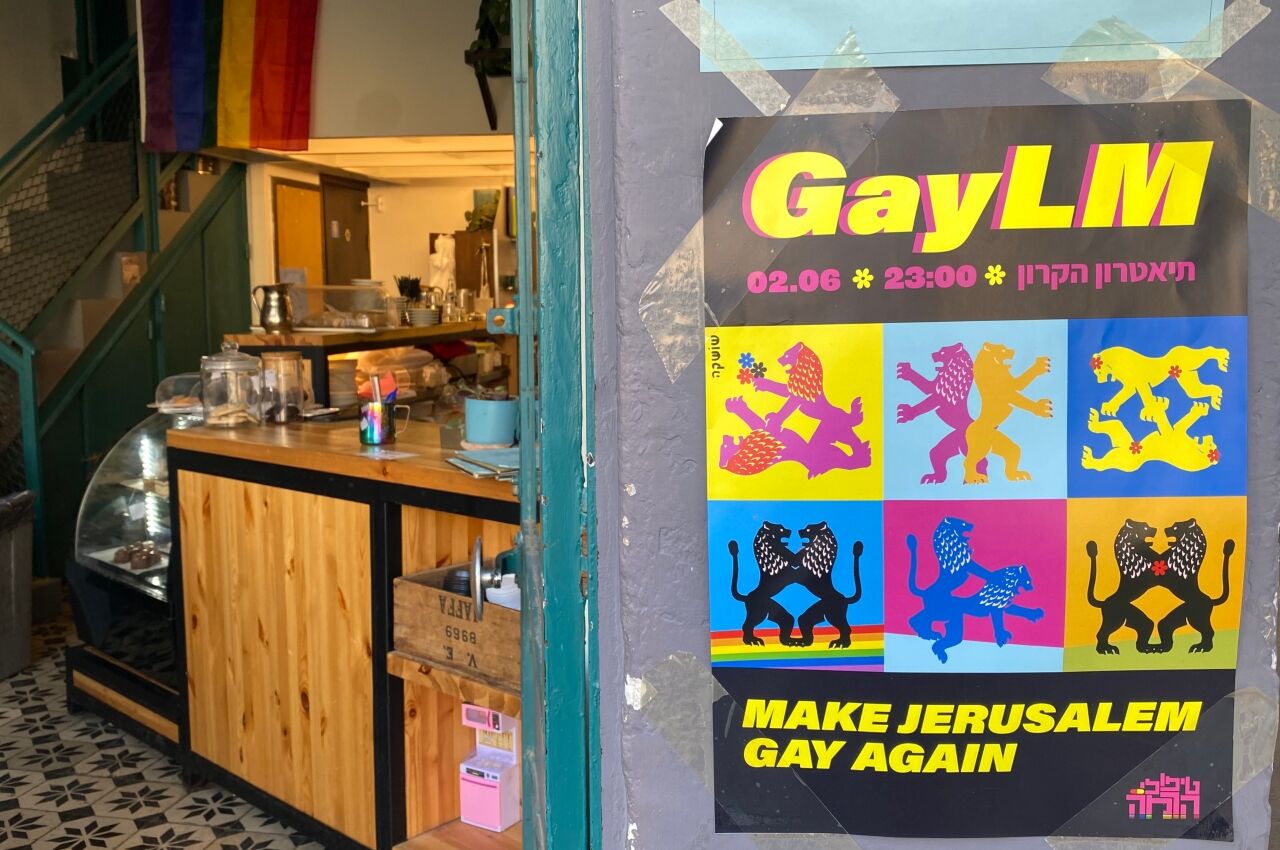
Photo: John Garry. Cafe Bastet.
Coffee culture is integral to the queer Jerusalemite community, and there’s no better place to get your caffeine fix than Cafe Bastet. Walk up the gentle slope of Heleni HaMalka Street, and you’ll immediately spot rainbow flags. Owned by two queer women and heralded as a feminist meeting place, this relatively new day hang quickly became a go-to for Jerusalem’s LGBTQ+ crowd. On sunny days, order an espresso and join the throngs gabbing at outdoor tables. When winter comes, snuggle inside with a book and a classic Israeli breakfast. Make sure you stop by the bathroom to peep the mural by Brooklyn-based street artist Sara Erenthal, an ex-ultra Orthodox Jew who left home at 17 to avoid an arranged marriage.
Herbivores will love Imbala — a cafe, gallery, and event space that bills itself as feminist, queer, anti-racist, multi-lingual, multi-generational, and vegan. “I go there to support their mission,” says Valfer. The cafe prides itself on being a haven for anyone who doesn’t feel welcome by the Jerusalem majority.
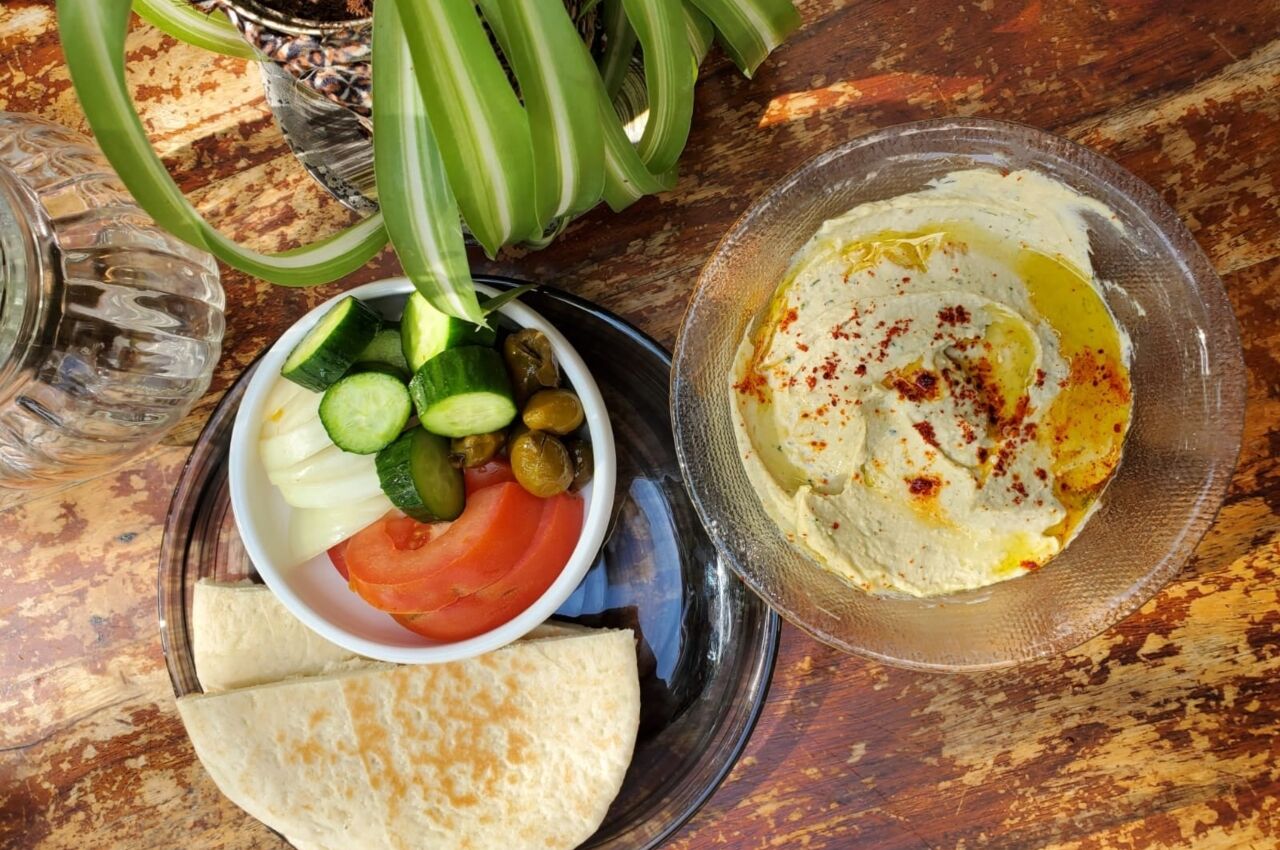
Photo: Imbala. Humous and pitta bread at Imbala.
Nearby spots like Cafe Liba (get the Italian-style sandwiches), Roasters Coffee (the best beans in town), and Pergamon (seasonal veggie fare in a historical setting) aren’t LGBTQ-centric but attract a liberal clientele. You’ll also find queer-friendly folks at contemporary art galleries like HaMiffal, a multi-use community space inside an abandoned 19th-century building where guests sip cocktails while admiring mural-adorned walls.
For after-hours activities, skip around the corner from Bastet to Video Pub — Jerusalem’s only LGBTQ+ watering hole. Look for the “V” posted out front and ascend the steps one floor above street level. Children take class at an Eritrean church next door, and if you arrive early, you might receive quizzical stares from intrigued youngsters.
“Video Pub is the synagogue of the gay community,” says Valfer. It’s a lot like Cheers — if everyone doesn’t know your name, they will by the time you leave. Although there’s a small dance floor, most patrons spend their nights chatting as the bartender slings drinks and plays their favorite pop tunes du jour. The dive attracts a mixed crowd, though Valfer says gay men make up the majority. Wednesdays are popular with the Sapphic set.
Gay Jerusalem’s best events
Jerusalem’s most prominent LGBTQ+ gathering is early June’s March for Pride and Tolerance — a parade that regularly attracts 10,000 attendees. Unlike Tel Aviv, where Pride is a party, this event is a protest, “and when you protest the government, the best place to do it is in the capital city,” says Valfer. While local governments in Tel Aviv and Haifa pay for Pride, the JOH must fund Jerusalem’s event without their local municipality’s support — an undertaking that costs the non-profit hundreds of thousands of dollars each year.
Since the march began in 2002, religious extremists have used threats and violence to push LGBTQ+ marchers out of the city — including a stabbing in 2015 that led to the death of 15-year-old Shira Banki. But intimidation from outside forces does little to scare queer crowds. A significant police presence protects marchers, and the fuel of rainbow solidarity propels participants along the route every year. Even in 2022, when event organizers received death threats, the parade went on as planned.
Don’t expect to see the panoply of corporate sponsors, shirtless beefcakes, or sex-forward scenes typical at other Pride events. In Jerusalem, you’ll walk with liberal religious leaders, protesting teens, allied parents, and a modestly-clothed crosshatch of queer Israelis from around the country.
For Valfer, his hometown’s take on Pride is refreshing. “In Tel Aviv, I feel the need to be a “professional gay,”” he says. “I need to dress in a particular way and look a particular way. I’m happy to march in Jerusalem instead, and feel like there’s a place for myself as I am.”
Valfer’s desire to find queer spaces that welcome all identities extends far beyond Pride.
Three years ago, he founded the LGBTQ+ pop-up party Tipulei Harama, which translates to “having fun therapy.” (The name is a play on “tipulei halama,” or conversion therapy, an iniquitous practice recently outlawed by the Israeli government but still prevalent in Orthodox Jewish communities.)
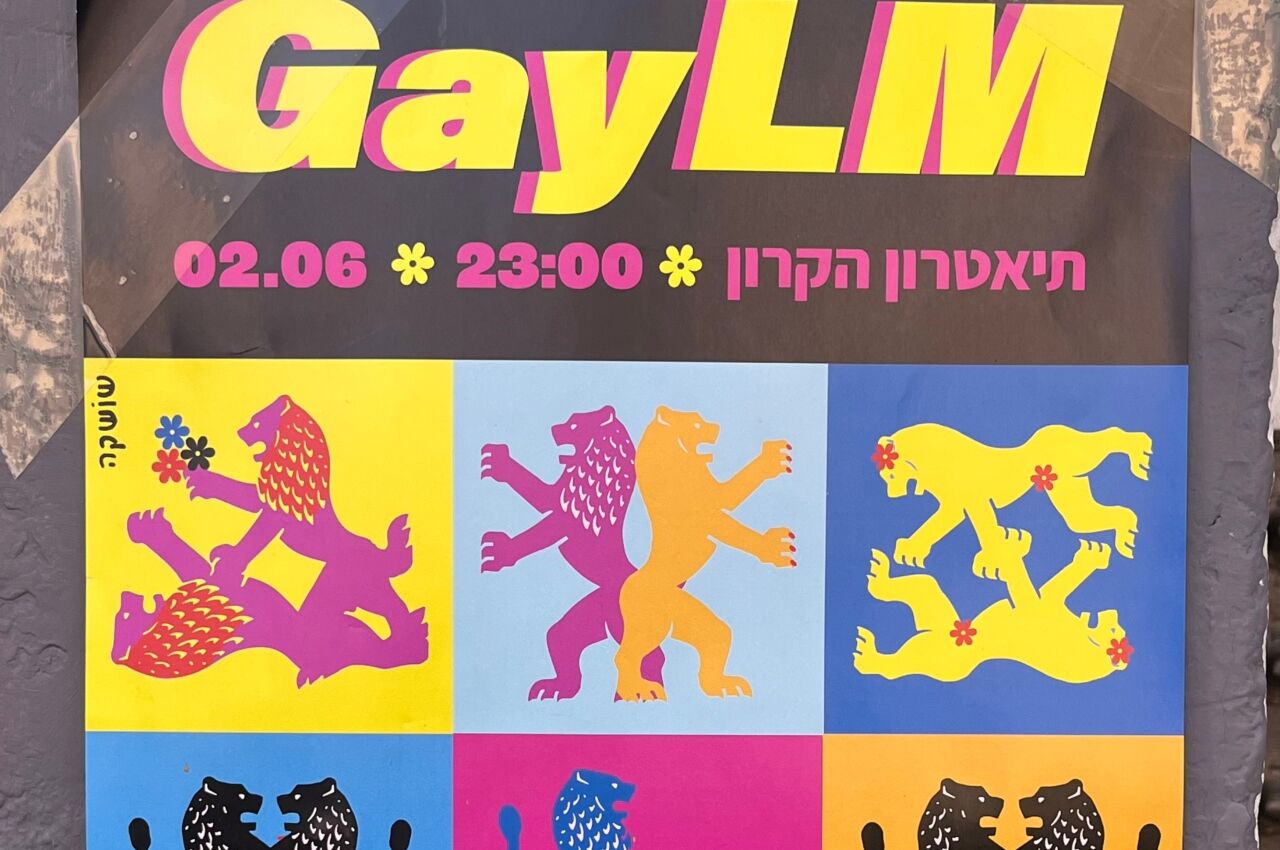
Photo: John Garry
“This was the first time in Jerusalem that there was a party for everyone in our community,” says Valfer, “not just gay or lesbian.” Jew, Arab, Orthodox, secular, queer, non-binary—if you can name it, you’ll find it at Tipulei Harama.
The party’s radical inclusivity — a rarity in Jerusalem’s divided city — attracts big crowds. At the first party, Valfer expected 50 people to show up; instead, 150 came. Now, each party feels bigger than the last, with attendees sometimes reaching one thousand.
With little to no clubs in Jerusalem, Tipulei Harama usually takes over large event halls — including spaces like the YMCA and even the Old City Walls, which the party once turned into a Paris is Burning-style catwalk. Check the party’s Instagram for upcoming events and destinations.
But if you’re looking for the lascivious-style parties of Tel Aviv, you’ll be sorely disappointed.
“In Tel Aviv, many people go to parties to cruise or find sexual partners,” says Valfer. “In small communities, it doesn’t work like that. You know everyone at the party. There is some sexual tension, but people come to have fun.”
Valfer’s definition of “having fun therapy?” His simple answer is centuries-old: dance. It’s a religion almost anyone can get behind.
What you need to know before visiting Jerusalem
When it comes to religious observance, it doesn’t get more strict than Jerusalem. That means Shabbat — Judaism’s day of rest between sundown on Friday and sundown on Saturday — turns the city’s streets into a ghost town. Unless you partake in the religious day of observance, stick to Tel Aviv or plan a day of hiking in the desert. If you stay in Jerusalem, you’ll be hard-pressed to find open restaurants and activities. The same goes for religious holidays — check the calendar before making travel plans.
Where to stay in Jerusalem
It’s possible to see Jerusalem’s top sites in a day, but Valfer recommends at least two nights to get a feel for the city. “You need to have time in Jerusalem,” he says. “It helps you understand life in the entire country.” If you choose to stay overnight, these are some of the most centrally-located spots to call home.
We hope you love the spaces and stays we recommend. Just so you know, Matador may collect a small commission from the links on this page if you decide to book a stay.
King David Hotel
Velvet headboards, pink sandstone facades, and an inground pool under azure skies. If you’re willing to splurge, it’s worth playing king at this ritzy resting pad near the Old City. The King David Hotel earns its royal name with grade-A decor, and if you like the queer take on King David and Jonathan, why not live out their modern romance in his eponymous hotel?
The Post Hostel
Save a buck by booking a room at this hip, young hostel five minutes away from the Video Pub. Located on the top floor of Jerusalem’s historic Central Post Office, built between 1934 and 1938, the building evokes bygone Jerusalem while placing you within walking distance of the city’s contemporary treasures.
Villa with garden in the heart of Jerusalem
After wandering the Holy City’s bustling stone streets, kick back in this Airbnb‘s private garden. The building’s Ottoman-era architecture matches Jerusalem’s old-world vibe, so you can spend your entire trip steeping in Middle Eastern history.
Luxury central apartment Even Israel #50
Sweeping city views and a ten-minute walk to the yummy Machane Yehudah Market make this contemporary apartment rental perfect for travelers looking to tuck into Jerusalem’s edgier side.
Check out Matador’s LGBTQ+ travel guides to Europe and the world
